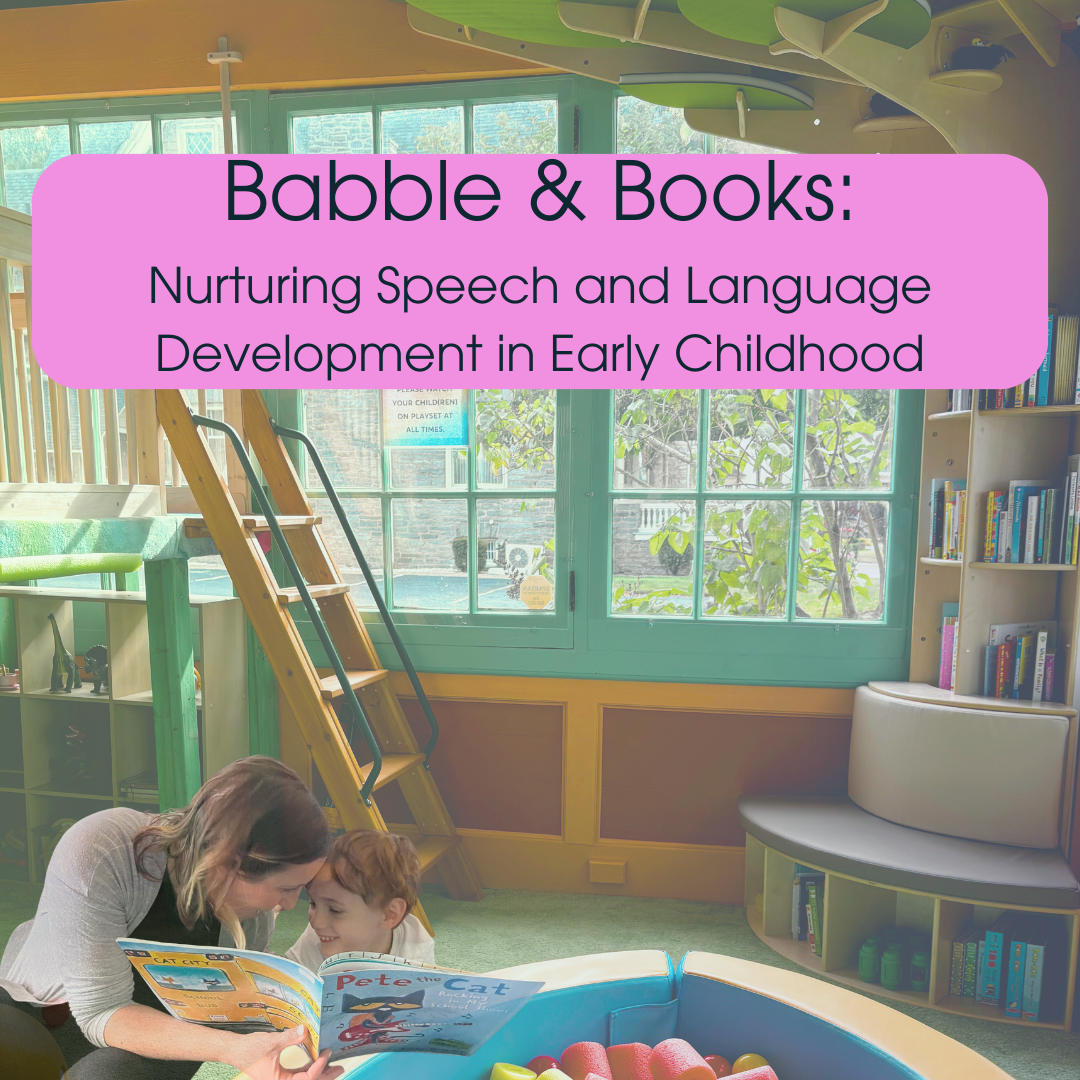
Spring Break Survival
If you’re like me, you start the week with visions of nature walks, crafts, and baking projects… and quickly find yourself negotiating screen time limits while Googling “free indoor activities near me.”

Why Babble & Books?
These sessions are designed for kids ages 1–4, and every detail—from the books we choose to the sounds we explore—is meant to support early speech and language development in a fun, natural way.

Why does everyone love speech?
When people hear "speech therapy," they might picture flashcards and repetitive drills. But in reality, speech therapy is interactive, engaging, and fun! At The Speech & Language Center, we believe that learning only happens when kids (and adults) are motivated, engaged, and enjoying the process.

Rethinking ‘Normal’: Am I weird? Yes, probably.
As a speech-language pathologist — and someone who thinks a little differently myself — I've come to appreciate just how beautifully unique our brains can be.
At The Speech & Language Center, we celebrate those differences by meeting each person where they are and building on their strengths. Whether or not someone has a diagnosis, we believe everyone deserves support that honors how they think, learn, and connect.

Neurodiversity-Affirming Speech Therapy: What It Really Means in Practice
Neurodiversity-affirming therapy is about empowering individuals to embrace their authentic selves while developing skills that support meaningful connections and participation in their communities.

Gliding: What is it and how to target it?
One common phonological process we see is called gliding—when a child replaces the /l/ or /r/ sounds with /w/ or /y/ (e.g., saying “wabbit” instead of “rabbit”). While gliding is typical in younger children, if it persists past the expected age, it can impact speech intelligibility and affect a child’s self-confidence.

The Heart of Therapy: Including Caregivers and Family in Sessions
This Valentine’s Day, we celebrate the love and support that families provide. If you’re looking for ways to become more involved in your loved one’s therapy journey, we’d love to help.

Music in Speech Therapy
The interplay between music and speech therapy underscores the adaptability of the human brain. By harnessing the power of music, therapists can stimulate neural pathways critical for communication, memory, and social interaction.
![The Power of Pausing [for Yourself]](https://images.squarespace-cdn.com/content/v1/662bdd6fa6de576465d75a02/1737471356536-GOZ6TGX3O6528CLVUAVV/unsplash-image-T1JKAour2Lo.jpg)
The Power of Pausing [for Yourself]
In our last blog, we focused on the power of pausing for others—creating space for children, clients, and loved ones. We don’t want to discount or forget about the importance of pausing for ourselves. Taking intentional moments for self-care is just as vital.

Powerful Pauses
Discover the transformative power of pausing for parents and clinicians. Learn how this simple yet effective tool fosters connection, builds independence, and encourages reflection, especially during the reflective winter season.

Empowering Young Minds: How The Speech & Language Center Helps Students Thrive
At The Speech & Language Center, we understand how critical executive functioning (EF) skills—like organization, planning, self-regulation, and problem-solving—are for a child’s academic success and social development. Yet, many young students face challenges in these areas, which can affect their school performance and peer interactions. That’s where our expertise makes a difference.

Thankful for Connection: How Communication Builds Bonds This Thanksgiving
For those who struggle with speech, language, or social communication, holidays can sometimes feel overwhelming. That’s why we’re passionate about helping individuals of all ages find their voice

Using Story Time to Nurture Early Speech and Language Development
Learn how to turn story time into a thousand little opportunities to build speech & language skills with your little one!

The Power of SLP-Led Groups for Individuals with Brain Injuries
An SLP-led group combines professional guidance with peer support, empowering individuals with brain injuries to set goals, build resilience, and strengthen connections within and beyond the group.

How to Respond When Kids Don’t Say “Trick or Treat”: Tips from SLPs
Small actions like these can create an environment where every child—no matter how they communicate—feels like they’re part of the Halloween festivities. By responding with warmth, understanding, and flexibility, we can make Halloween a magical night for every child in our community.

Unlocking Skills Through Dress Up
When children put on costumes, they’re not just having fun; they’re engaging in role play, which encourages storytelling, turn-taking, perspective taking, and problem-solving. Whether they’re pretending to be a superhero saving the day or a chef cooking something special, they’re using new vocabulary, practicing sentence structures, and thinking differently to stay in character.

Speech Group Therapy: Builds Confidence
Children leave our group sessions with improved communication, greater self-confidence, and meaningful friendships that enrich their social lives.

The Power of Change: Neuroplasticity
Neuroplasticity, the brain’s ability to reorganize itself by forming new neural connections, is the foundation of learning and development. This concept is central to the work we do. Just as our brains adapt to new experiences, we too can adapt to changes in our lives and environments.

The Importance of Play in Developing Speech and Social Skills
As children grow, playtime isn't just about having fun—it's a crucial part of their development. It plays a pivotal role in developing essential speech, language, and social skills.

Boosting Executive Functioning Skills During the Summer
As the school year winds down and summer begins, students often find themselves with more free time and fewer structured activities, which is great! This break from routine provides a unique opportunity to focus on developing crucial executive functioning skills, such as organization, time management, and problem-solving. These skills are essential for success in school and life, and the relaxed pace of summer can be an ideal time to practice them in fun and practical ways.

